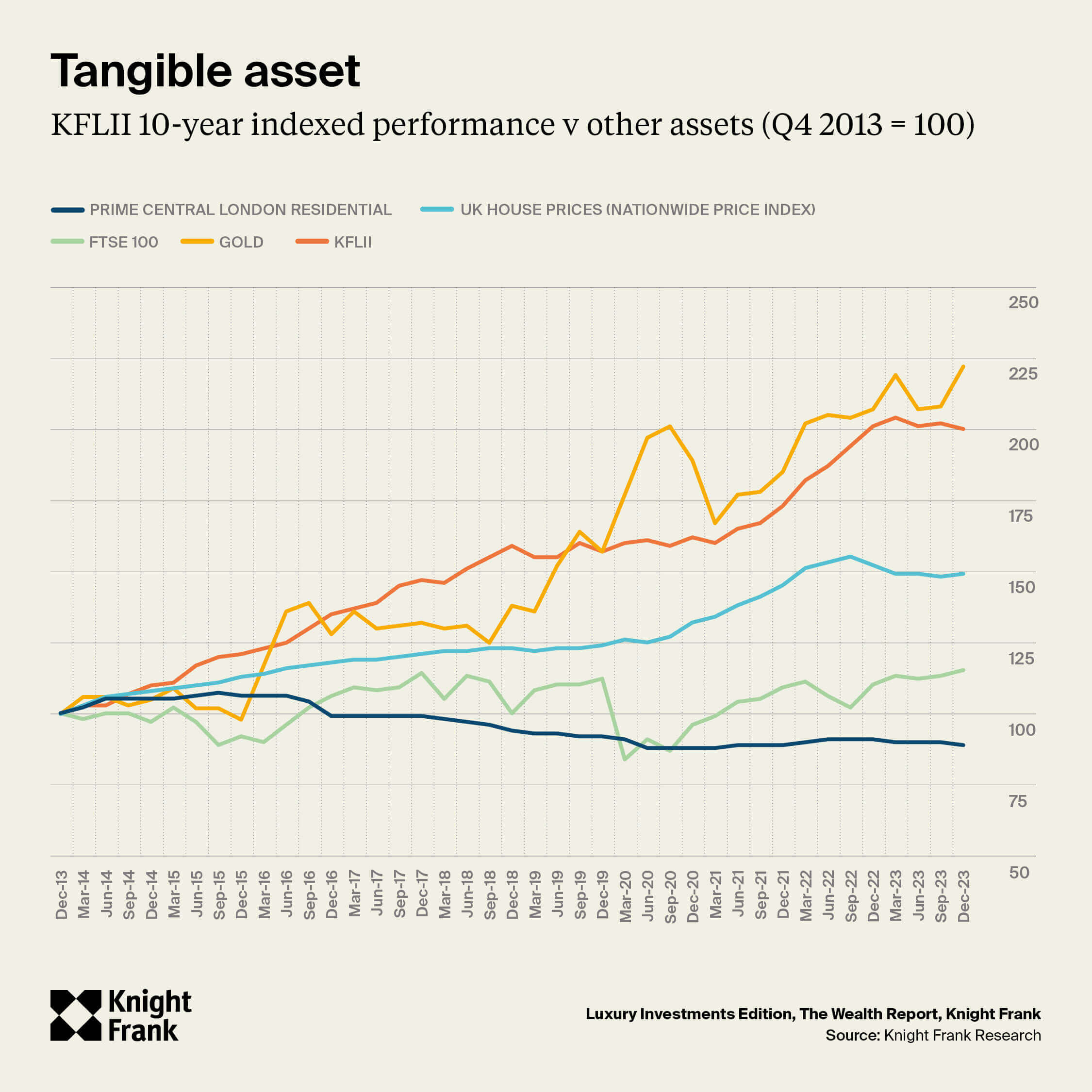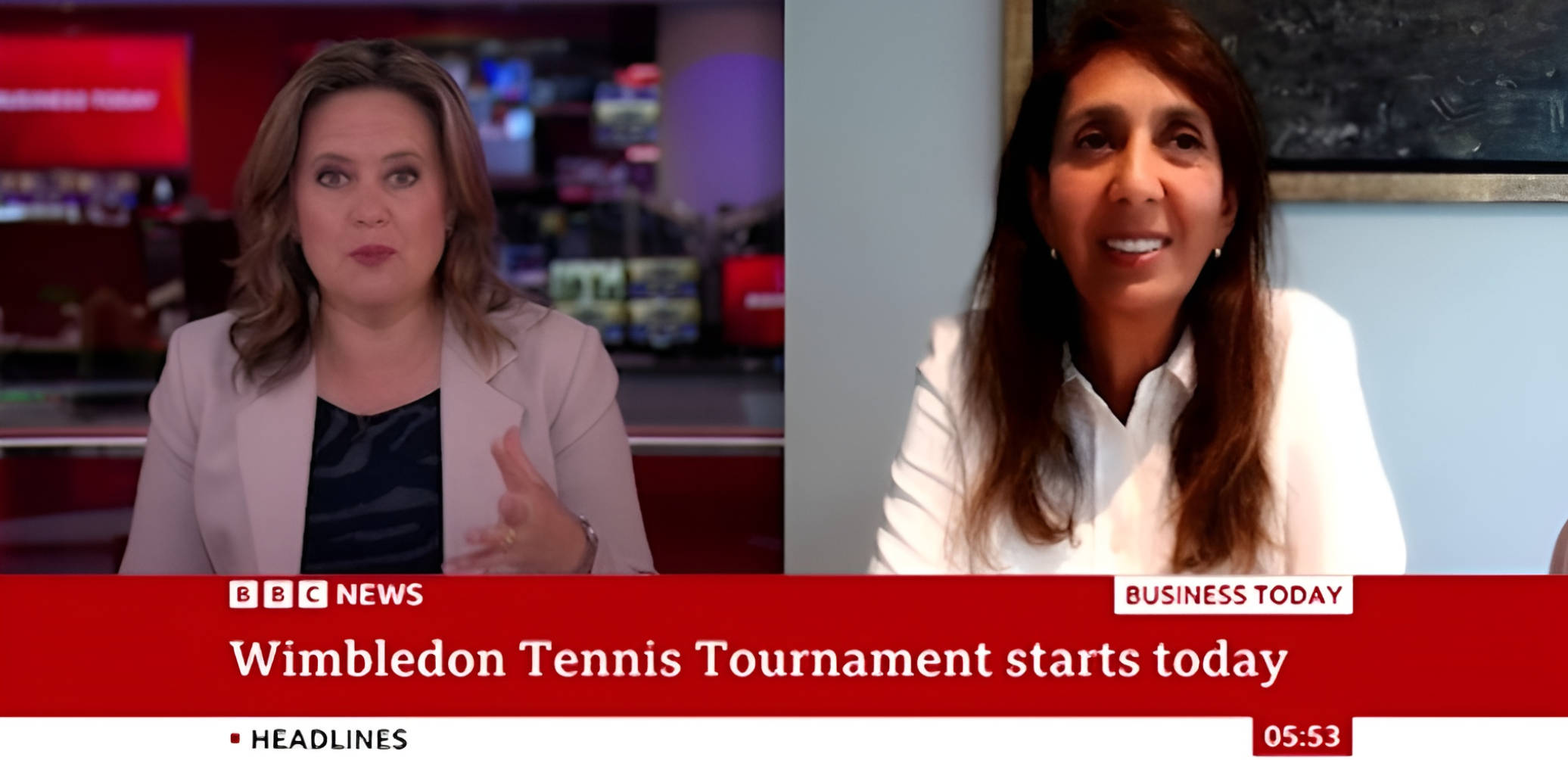
DEBENTURE TICKETS
 +44(0)203 883 5010
| Open 9am to 5pm, Monday to Friday
+44(0)203 883 5010
| Open 9am to 5pm, Monday to Friday
Are Wimbledon Debentures a Good Investment?
By Ed C
11th December 2025

Introduction
Whether you're an experienced investor exploring more diverse assets or a first-timer with a passion for tennis, Wimbledon debentures offer a distinctive investment opportunity.
This article explains what Wimbledon debentures are, and considers the benefits, quirks and risks associated with investing in these unique luxury assets. The following is a comprehensive guide to help you make an informed decision.
What makes Wimbledon debentures special?
Wimbledon is the oldest tennis tournament in the world, and is regarded by many as the most prestigious tennis tournament. The tournament is steeped in tradition and the only Grand Slam still played on grass.
Uniquely the AELTC has, since 1920, issued debentures to raise funds to continually improve the player and visitor experience and maintain Wimbledon's position as a world class sporting event. Wimbledon debentures provide tennis fans and investors with an opportunity to invest in the Wimbledon Championship and participate in the development of this sporting institution.
There are only 2,520 Centre Court debentures and 1,250 No 1 Court debentures. Given that the majority of debentures are held in pairs, and some debenture holders hold more than a pair, there are far fewer actual debenture holders than debentures in circulation. debenture holders are offered the right to renew their debentures (on a one for one basis) at the time of each new issue. The vast majority of debenture holders take up their rights so it is extremely difficult to successfully subscribe for a new debenture issue. This leaves the option of buying Wimbledon debentures on the secondary market.
What is a Wimbledon debenture?
A Wimbledon debenture is a financial instrument (debt security) issued by The All England Lawn Tennis Ground plc "The Company". The Company is wholly owned by the All England Lawn Tennis and Croquet Club Limited "AELTC".
The Wimbledon debenture is essentially a commercial loan made by the debenture holder to the Company structured as a nominal amount and a non-repayable premium to which VAT is added. The nominal values for Centre Court and No 1 Court are £2,000 and £1,000 respectively.
Each Wimbledon debenture is issued as a series of 5 year debentures. The debentures are unsecured, do not carry interest or dividends and are redeemable at par at the end of the fifth year. At the end of the 5 years only the nominal values are returned to the debenture holder. The debentures are not admitted to trading on any regulated market and are illiquid. Dowgate Capital, runs a fully tradable weekly auction market in Wimbledon debentures as partner of the AELTC for secondary trading.
Wimbledon 2026 Debenture Tickets
Make an offer and buy direct from debenture holders. Get the best seats.
Wimbledon 2026 starts in:
The rights and privileges that come with owning a Wimbledon debenture
The main right that comes with owning a Wimbledon debenture is a debenture seat ticket for each day of the tournament, on the respective court. debenture seats are prime seats and on Centre Court roughly at the same level as the Royal Box. Privileges include access to exclusive bars and restaurants, and parking close to the dedicated debenture holders entrance. Occasionally the AELTC organises events for debenture holders. These events are usually focussed on the inner workings of the Championship.
The tickets attributed to the debenture holder are the only Wimbledon tickets that can be resold and are freely transferable.
Are Wimbledon debentures a good financial investment?
Wimbledon debentures are purchased for a variety of reasons.
At one end of the spectrum, some owners purchase the debentures solely for the benefit of the tickets, because they love attending Wimbledon, using the tickets personally and giving them to family, friends or clients.
At the other end of the spectrum, some debentures are bought solely for the financial returns. The owner has no intention of using the tickets themselves, and plans to resell the tickets or the debenture itself, for a profit.
Can you make a return from debenture ticket sales?
The answer to this question depends heavily on the price the debentures are purchased for. Compared to debentures purchased in the primary market (directly from the AELTC) secondary market prices can fluctuate considerably.
Primary market prices have increased significantly over the past few new debenture issues:
| Centre Court | No.1 Court | ||
|---|---|---|---|
| Series | Debenture Price | Series | Debenture Price |
| 2001-2005 | £23,150 | 2022-2006 | £9,900 |
| 2006-2010 | £23,150 | 2007-2011 | £12,250 |
| 2011-2015 | £27,750 | 2012-2016 | £13,700 |
| 2016-2020 | £50,000 | 2017-2021 | £31,000 |
| 2021-2025 | £80,000 | 2022-2026 | £46,000 |
As of the date of this article, February 2024, debentures have changed hands on the secondary market for in excess of £100,000 for the Centre Court 2021-2025 series, and £35,000 per debenture for the No 1 2022-2026 series.
The current Centre Court series has 2 years' worth of tickets left. The current No 1 Court series has 3 years' tickets remaining. The price of debentures purchased on the secondary market also includes a premium for the right to renew, entitling the owner the right to purchase debentures when the next series is issued (2026-2030 for Centre Court & 2027-2031 for No 1 Court).
Whether or not it is worth buying Wimbledon debentures in the secondary market for investment purposes depends largely on the resale value of the tickets.
The impact of COVID
When the Championships were cancelled in 2020 as a result of COVID measures, the AELTC reimbursed debenture holders the full pro rata price of their tickets for that year (the equivalent of one fifth, or one year, of the total debenture premium).
The resale value of tickets for 2021 and 2022 was distorted by the pandemic, and ongoing restrictions on international travel deflated the international market for debenture tickets. In particular, the 2021 Championships, which was the first year of the current Centre Court series, and the last year for No 1 Court, was extremely challenging for debenture ticket resale.
The participation of the AELTC in the Governments Event Research program resulted in all the tickets that would have been part of the Public Ballot becoming available to purchase online at the corresponding prices. This effectively removed the price premium attached to debenture tickets and the resale market for all intents and purposes collapsed for that year's Championships.
A return to normal trading conditions
The 2022 Championships saw an improved market for debenture ticket resale as international travel began to normalise, and the Public Ballot returned to normal operation.
The 2023 Championships provided a very strong market for debenture tickets and the historic final between Novak Djokovic and Carlos Alcaraz heralded an exciting new era, fuelling considerable interest ahead of the 2024 Championships.
New Centre Court debenture Issue 2026-2030
The AELTC is currently preparing the next Centre Court issue which will cover the Championships 2026-2030. The price for the new issue will be announced and applications accepted as from 1pm on 21 March 2024. Applications must be received by the AELTC before 12pm on 26 April 2024.
Whether these debentures are a good investment will first of all depend on the issue price and then the resale prices that can be achieved for the tickets. Each Centre Court debenture series has been issued at a significant increase to the previous series.
The AELTC has, for a number of years, operated a two-way fixed-price market in tickets as a service to debenture holders. A number of months before The Championships, the AELTC offers to buy back tickets issued to debenture holders, and offers to sell these tickets to other holders. This activity is known as the "Official Market" but the AELTC is not legally required to provide this facility under terms of the debenture.
The following table shows prices that have been offered by the Official Market for the past 3 years and average prices offered by the main ticket brokers over the run up to the tournament. Prices are for a whole book of Centre Court tickets, i.e. tickets for every day of the tournament.
| 2021 | 2022 | 2023 | Average for the past 3 years | Extrapolated for 5 years | |
|---|---|---|---|---|---|
| Official market | £15,600 | £16,600 | £18,000 | £16,733 | £83,667 |
| Average broker price | £16,263 | £23,357 | £26,346 | £21,989 | £109,943 |
Based on market research carried out by Green & Purple
As of the date of this article, there are Wimbledon debenture ticket broker offers in the market of £65,000 for a pair of Centre Court book of tickets on the basis of 4 adjacent seats (£130,000 for 4 seats for all days), and £30,000 per Centre Court book on the basis of 2 adjacent seats (£60,000 for 2 seats for all days). A book of tickets is a ticket for every day of the Championship. For Centre Court there are 14 tickets in every book.
Very few debenture holders own 4 debentures. 4 adjacent seats are therefore much rarer than pairs of seats, and sell at a premium.
If we consider the current Centre Court 21-25 series which was issued at £80,000 per debenture and assume that £30,000 per book is achieved for the Championship years 2024 and 2025. This provides us with a total ticket resale market value of £125,966 (the actual broker prices achieved for the past 3 years of £65,966 added to £60,000 estimated for 2024 and 2025). This equates to a return on investment over the period of 57%.
The 21-25 issue price was paid in 3 instalments, so the payment schedule needs to be factored into any ROI calculations.
2021-2025 Centre Court debentures were trading at £65k shortly after the first instalment of £20k was paid (meaning a premium of £45k). However, this does not take into account the fact that, prior to the 2021-2025 issue, an investor would have had to purchase debentures from the previous issue to enjoy the right to renew.
When considering ROI, it is more useful to consider secondary market prices in light of the value of the remaining tickets.
For example, if the current issue is trading at approximately £100k, and the remaining 2 years do produce £30k per year from debenture ticket sales, this would mean the debentures are trading at a premium of £40k (£100k - £60k expected ticket sale returns for 2024 and 2025 = £40k).
This £40k premium represents the right of renewal, giving the owner the right to purchase debentures in the next issue. Once the renewal deadline has passed, this premium is lost.
Debenture ticket resale prices depend on many factors including popularity of the players attending Wimbledon, the strength of sterling, and international travel disruptions. As such it is difficult to predict how debenture ticket resale prices will evolve in the future.
Is it possible to compare Wimbledon debentures with other asset classes?
There are several considerations that make it difficult to compare debentures with mainstream asset classes.
Compared with many other asset classes, debentures are relatively illiquid and a depreciating/wasting asset. Owners can sell their debentures on the official secondary market operated by Dowgate Capital.
The ROI for debenture and ticket resales is uncertain, and dependent on a range of disparate factors, including interest in tennis, the performance and health of star players, exchange rates, general macroeconomic conditions and international travel disruptions.
Payments are made in instalments, and although the 21-25 Centre Court Series were issued in a low interest rate environment, interest rates and inflation have increased significantly during this period.
Comparing Wimbledon debentures to other luxury investments
Wimbledon debentures could possibly be considered as a luxury or "passion" investment, comparable to other luxury investments such as jewellery and watches, fine wines, whisky, cars and handbags.
Luxury investments form an alternative asset class and hold a personal or emotional value beyond simply monetary wealth. Like many luxury assets, the number of Wimbledon debentures is finite.
The key difference with Wimbledon debentures is that they expire after 5 years. Each year, the value of the debenture would be expected to reduce by the value of 1 year's worth of Wimbledon tickets.
Knight Frank, the UK's leading property consultants, compile a Luxury Index comprising a 'basket' of ten asset classes owned by high-net-worth investors. These include real estate, art, classic cars, coins, colour diamonds, fine wine, furniture, jewellery, watches, and rare whisky.
According to Andrew Shirley, Head of Luxury Research at Knight Frank, "luxury assets have performed well compared to UK property, UK equities and Gold over the past 10 years".

The Pros and Cons of investing in Wimbledon debentures can be summarised as follows:
Pros
- A guaranteed prime seat to the Championships
- The right to renew for future debenture issues
- Access to exclusive bars and restaurants
- Dedicated debenture holder entrance
- Ownership of an exclusive and highly desirable asset
- Potential for capital appreciation and a financial return on the sale of the tickets
Cons
- High initial investment cost
- Limited liquidity
- No guaranteed financial returns
- Set maturity date, so debentures are essentially a wasting asset
- Exposure to global events such as war and major pandemics
- Exposure to player health (E.g. Rafael Nadal withdrew from his 2022 semi-final match with Nick Kyrgios. This semi-final was cancelled so there was only one semi-final that year)
- Exposure to global interest in tennis and interest in individual players
Conclusion
Wimbledon debentures are an interesting and niche investment and present both rewards and risks. That said, the emotional returns on Wimbledon debentures are more reliable than the financial returns.
If the debentures are acquired with the sole aim of selling the debentures or tickets for profit, then perhaps only those investors to whom the cost represents a small portion of their overall wealth should invest.
If tennis is your passion, the emotional returns of watching your favourite players compete at the world's greatest tennis tournament should easily balance out the potential for a lower financial ROI, compared to more conventional investments.
This article is designed for information purposes only and does not constitute a personal recommendation, offer or invitation to buy or sell any investment referred to within it. Investors should form their own conclusions and/or seek their own advice to determine whether any particular transaction is suitable for them in the light of their investment objectives, the benefits and risks associated with the transaction and all other relevant circumstances.
Get the ball rolling...
For an unforgettable day at The Championships 2026, find your perfect tickets here: Buy Wimbledon tickets
If you would like to sell your debenture tickets, sell your tickets here.
Need help?
If you need help at any stage, you can refer to our detailed FAQs or you can contact us:
- Call: +44(0)203 883 5010
- US Toll-free: +1 888 763 7220
- Email: service@greenandpurple.com
- Or arrange a callback
It was an easy process
"I thought I'd send you a short note to thank you for dealing so efficiently with my Wimbledon debentures in 2021. It was an easy process to sell the days I didn't want to Green and Purple and payment was made promptly. I look forward to dealing with you again in the future."
Robert MacKenzie
More testimonialsWimbledon 2026 Debenture Tickets
Make an offer and buy direct from debenture holders. Get the best seats.
Wimbledon 2026 starts in:
News and articles
February 2026
The Month Ahead

The Month Ahead in Tennis - February 2026

Green & Purple Interviewed on BBC News Business Today

